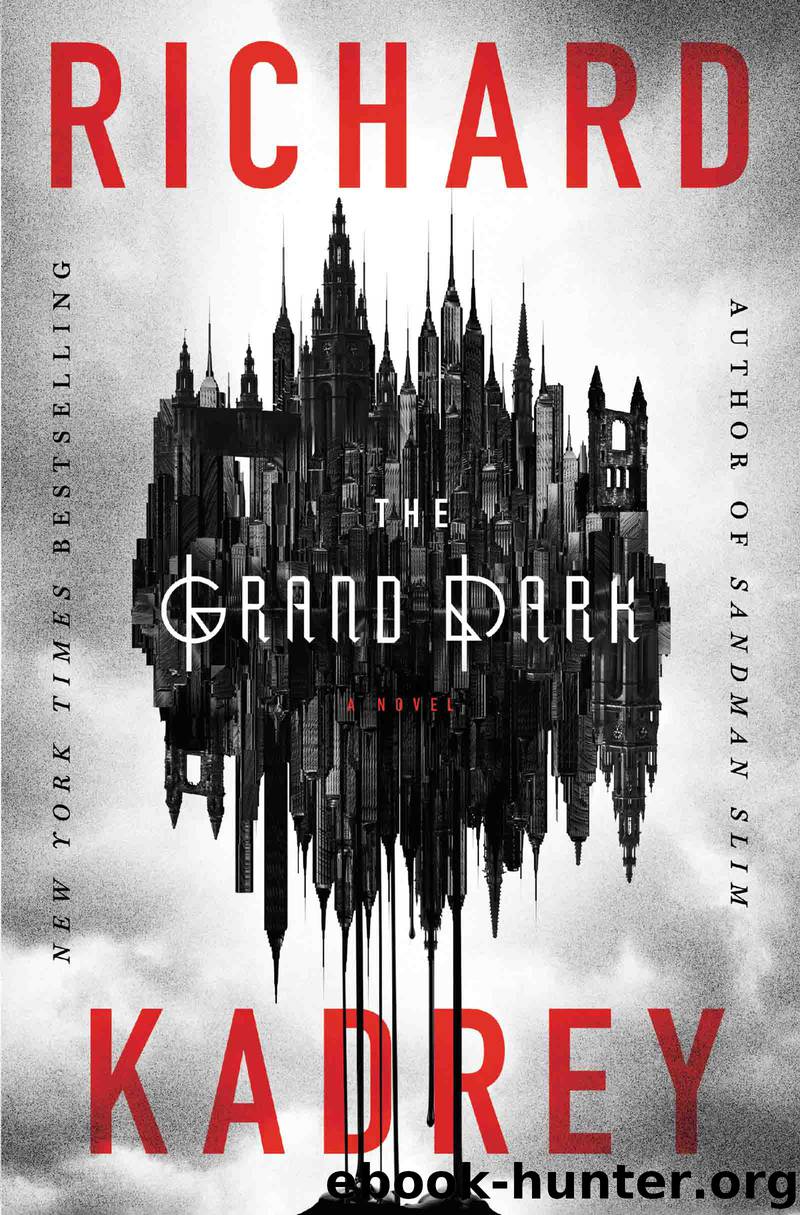The Grand Dark by Richard Kadrey

Author:Richard Kadrey
Language: eng
Format: epub
Publisher: HarperCollins
Published: 2019-04-25T04:00:00+00:00
Xuxu: Artistic Movement or Academic Prank?
From New Studies in Lower Proszawan Art by Käthe Merg
Prior to the Great War, Xuxu was a largely unknown art movement. Founded at the Wenders School of Art in High Proszawa, in its nascent form, it was seen as pointless and frivolous, an art joke for an insular group of university students. Even the word Xuxu is nothing more than a meaningless sound. However, after the war, it took a form dedicated to the principle that all life and, therefore, all art is political.
Xuxu was created by a motley assortment of students, street artists, and outright criminals. Thieves, for instance, furnished many of the supplies the artists needed when they couldn’t steal them from the university. Underground dealers supplied the drugs that fueled much of the movement’s early work. During this period, artists collected found objects and frequently defaced accepted works of art in an attempt to break free from all tradition.
If any one person can be said to be the leader of early Xuxu, it’s Volger Berk. He claimed to have created the movement’s name and ethos in an act of “supernatural inspiration.” However, history reveals the early Xuxu had more to do with narcotics and reading the yellowsheets for absurd stories, while also watching public walls for new government and advertising posters to mock. In many ways, Xuxu’s early days were a joke wrapped inside a joke. Artists making art for other artists.
However, there was one significant idea that came from this period, that of the Pantheon of Malignance. This group of dark “gods” consisted of grotesque parodies of the Chancellor, the Archbishop, Baron Hellswarth, and various governmental secretaries who were regularly cursed and banished in quasimagical public rituals. While these performances were popular within the university, they were seldom seen by anyone but other students.
Then something important happened to Xuxu at the beginning of the Great War. While the movement remained absurdist and centered on attacking academic art, during this period all questioning of tradition was seen as unpatriotic as troops marched off to the front lines. During those years, the Xuxu movement largely fell silent except among a handful of open-minded collectors and the artists themselves. As the war went on, their meetings became more and more clandestine until they seemed to some outsiders to be possibly subversive.
Soon after Volger Berk was arrested and questioned by the Nachtvogel, he renounced the movement and it quickly fragmented into several warring schools that became ever more insular. By the end of the war, Xuxu was generally regarded to be a corpse—and an obscure one.
However, in the mass euphoria that gripped Lower Proszawa after the armistice, the repressive politics of the war years dissolved. People threw parties in the streets, social mores became more progressive, and art for its own sake came back into vogue. At the same time, the price of the war became more and more obvious. The art school that had birthed Xuxu had been destroyed. Thousands of wounded soldiers returned to the city.
Download
This site does not store any files on its server. We only index and link to content provided by other sites. Please contact the content providers to delete copyright contents if any and email us, we'll remove relevant links or contents immediately.
| Anthologies | British & Irish |
| Dark Fantasy | Erotic Horror |
| Ghosts | Occult |
| Reference | United States |
| Vampires |
In Control (The City Series) by Crystal Serowka(36207)
The Wolf Sea (The Oathsworn Series, Book 2) by Low Robert(35224)
We Ride Upon Sticks by Quan Barry(34507)
Crowbone (The Oathsworn Series, Book 5) by Low Robert(33598)
The Book of Dreams (Saxon Series) by Severin Tim(33358)
The Daughters of Foxcote Manor by Eve Chase(23602)
Trainspotting by Irvine Welsh(21631)
Call Me by Your Name by André Aciman(20482)
The Secret History by Donna Tartt(19023)
Shot Through The Heart (Supernature Book 1) by Edwin James(18906)
All the Missing Girls by Megan Miranda(15921)
American King (New Camelot #3) by Sierra Simone(15781)
The Girl from the Opera House by Nancy Carson(15768)
Pimp by Iceberg Slim(14476)
Sad Girls by Lang Leav(14398)
The Betrayed by Graham Heather(12810)
The Betrayed by David Hosp(12765)
4 3 2 1: A Novel by Paul Auster(12362)
Still Me by Jojo Moyes(11248)
